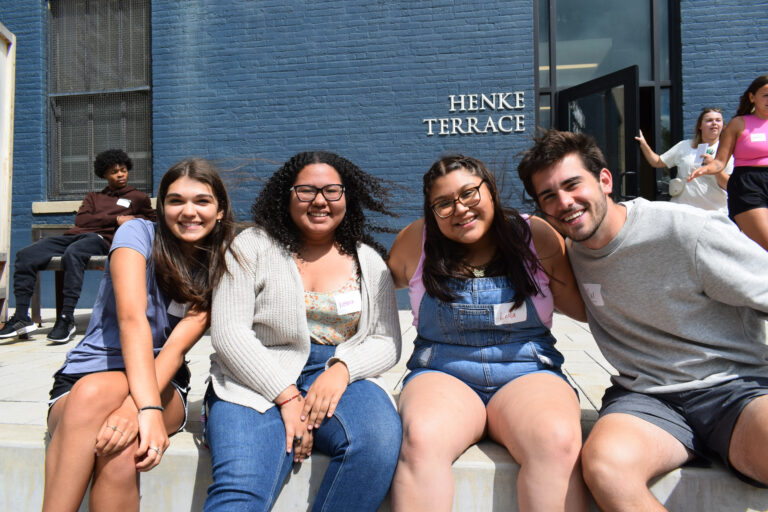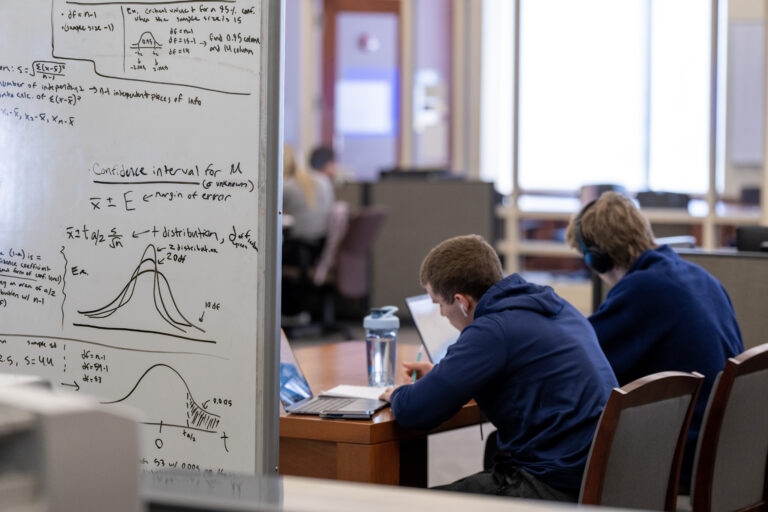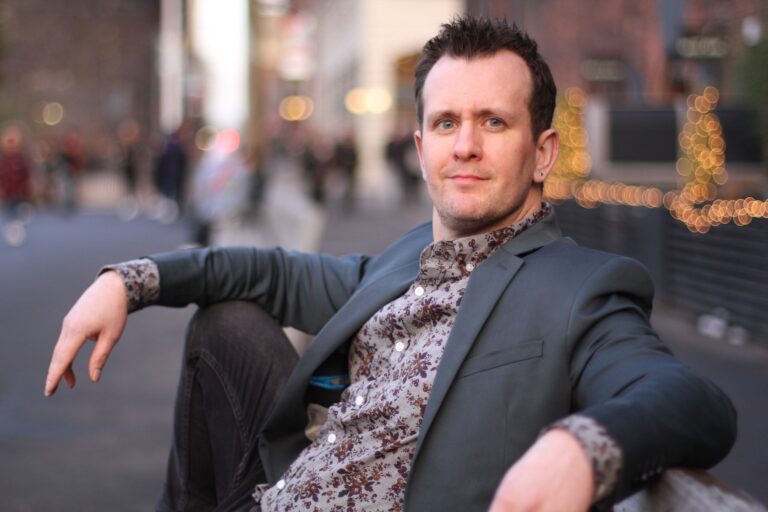Max Pickart was a freshman in high school when he became interested in the Burke Scholarship Program. He first heard about the opportunity through his older brother’s application process to Marquette.
“I was intrigued and inspired by Dick Burke’s love of Milwaukee and his belief in the power and influence of human connection,” says Pickart, a senior in the Klingler College of Arts and Sciences. “I applied because of the program’s emphasis on forming relationships through serving people in Milwaukee’s marginalized communities.”
The Burke Scholarship Program was created in 1993 by the late Richard Burke, co-founder of Trek Bicycle Corporation. It’s a four-year program for full-time undergraduate students who have a passion for social justice. The program annually awards a full-tuition scholarship to 10 academically talented Wisconsin high school seniors who have demonstrated exceptional commitment to their community through service, leadership and social justice and aspire to pursue careers that benefit the public good.
Centered in service
The program requires recipients to serve 10 hours a week — equivalent to 300 hours of service per academic year.
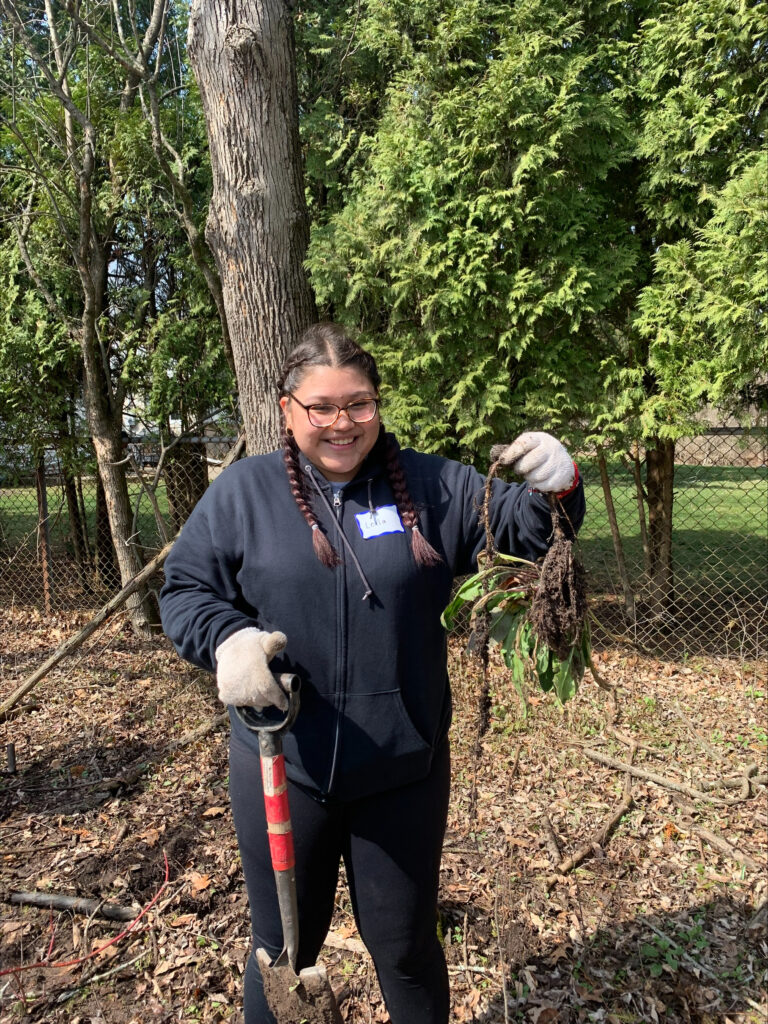
“Volunteer work is individualized to each person in Burke,” says Leila Hernandez-Salinas, a junior studying political science and criminology and law studies. “The director of the scholarship is very open to hearing about our interests, areas of study and history with service when figuring out our placement. She truly wants us to feel comfortable where we serve as well as find an area that will allow us to explore what service means to us.”
Hernandez-Salinas currently serves at Legal Aid Society of Milwaukee to overlap her interest in law and the legal world.
“Usually, my service has been more hands-on, and my role at Legal Aid Society allows me to serve in a more behind the scenes way which has given me a different definition of service than what I had thought of before,” Hernandez-Salinas says.
As a freshman, Pickart aspired to attend law school. Combining his interests with his service work led him to volunteering at the Milwaukee Justice Center, a nonprofit that serves Milwaukee’s low-income, underrepresented litigants.
“At the MJC, our supervisors emphasize the importance of meeting people where they are. Mary Ferwerda, the director of the MJC, encourages all volunteers to actively listen to each person and trust their story, their experience and their convictions in the present moment,” Pickart says. “Because of Ferwerda and full-time employees of the MJC, the culture calls volunteers to be committed to the work and to be compassionate to all people. The focus is on building relationships, as well as accomplishing tasks.”
Making a difference
On top of the volunteer work, Burke provides support, mentorship, social justice seminars and retreats, and strong relationships with peers and community partners. Through this, it strives to deepen relationships, knowledge and leadership skills.
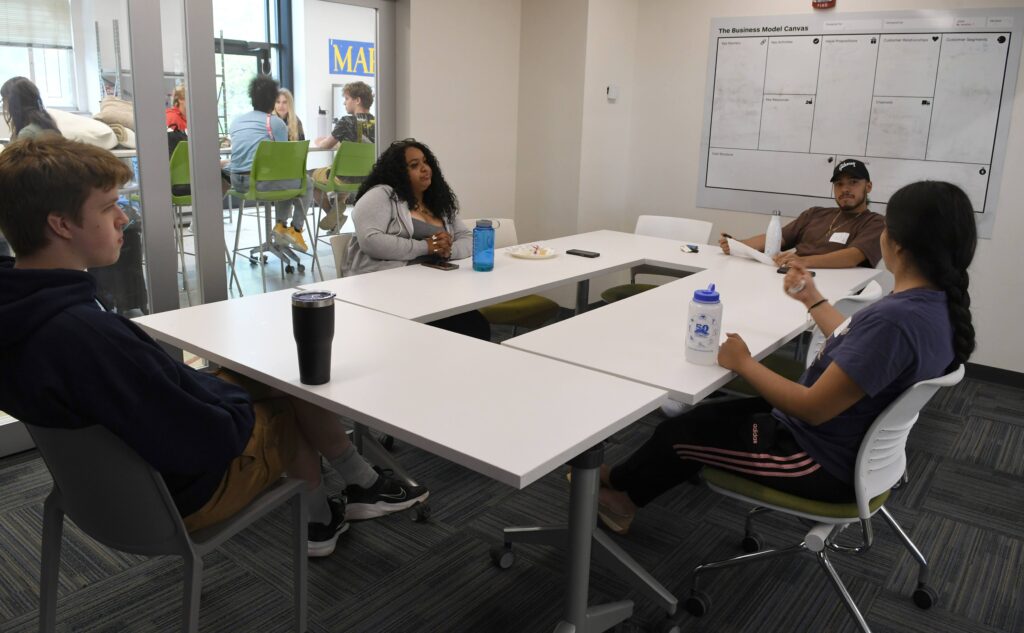
“As a Burke Scholar at Marquette, I am consistently challenged to participate in uncomfortable discussions and activities with peers, community leaders and the community nonprofits with whom I serve,” Pickert says. “Often tense, these conversations have helped me to recognize that we have a moral obligation to continue to engage in progressive, uncomfortable conversations, openly receive constructive criticism, and readily confront local, national and global issues that contribute to inequity and injustice in modern society. Burke has taught me that discomfort is essential for growth.”
Through the valuable lessons and work of the Burke Scholars Program, the hope is that the lessons learned help the scholars continue service work for a lifetime.
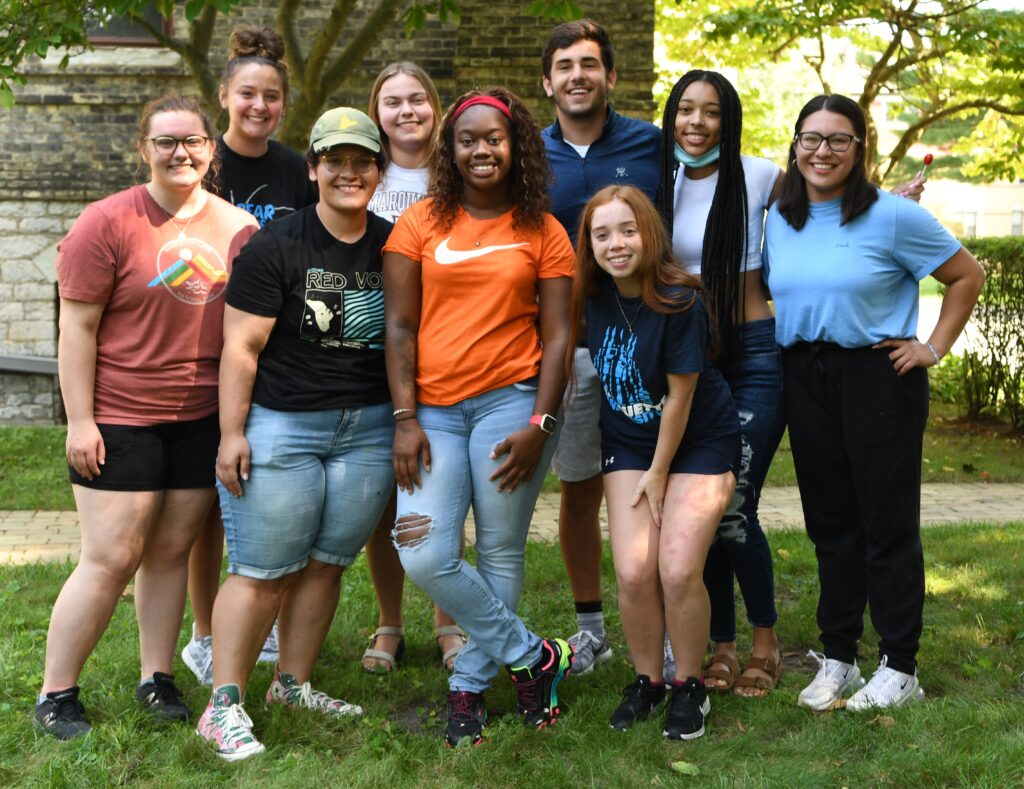
“Dick Burke’s legacy lives on through his program,” Hertzberg says. “He believed that making an investment in people was a smart investment, as the impact is ongoing. Burke Scholars not only give back while in the program, but throughout the student’s lives, in their careers, vocations and community engagement.”
“There is a well-known adage in the program that you don’t really become a Burke Scholar until after you graduate — this is when you truly give back to your community, become a leader for others and make change in the world,” says Dr. Carie Hertzberg, the Burke Scholarship director and assistant dean of community service.
With the commitment to the Milwaukee community and the transformation of students, the Burke Foundation recently committed $4.6 million to extend the Burke Scholars and Trinity Fellows programs to include housing and meal plan costs as well.
